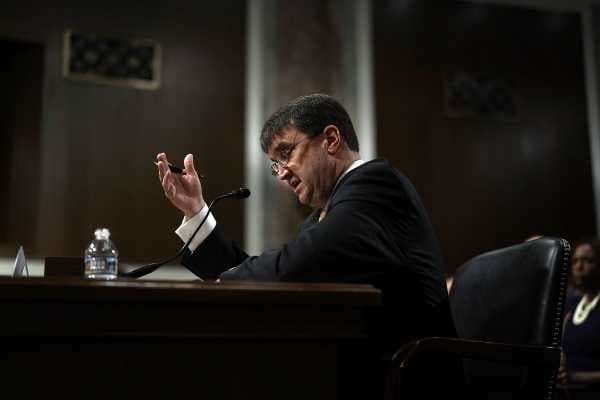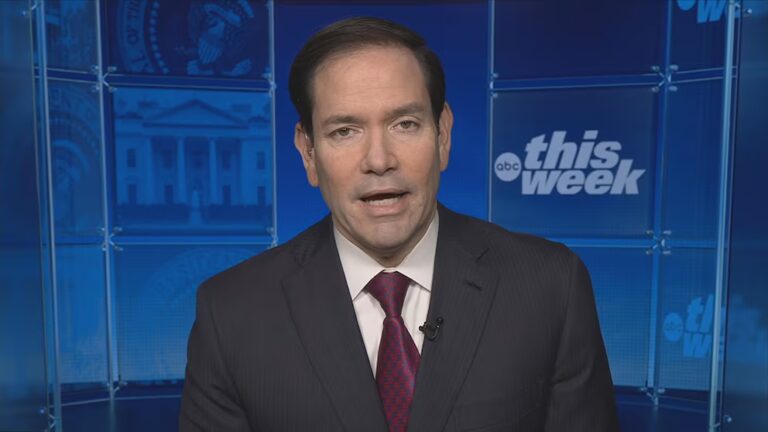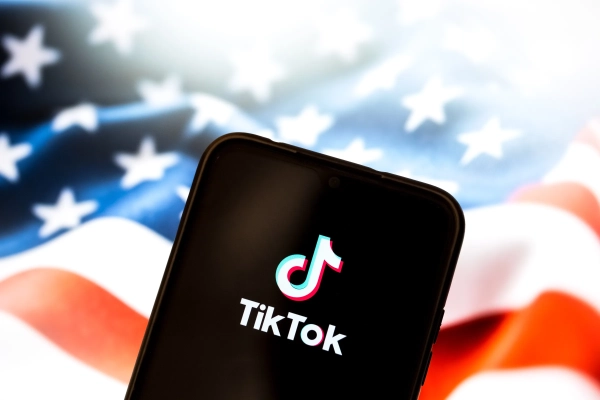
The Department of Veterans Affairs is no stranger to scrutiny, but its latest mistake — delayed housing benefits for student veterans that’s left potentially thousands scrambling to pay rent on top of tuition and other costs — has elicited as much confusion as outrage.
Here’s what’s going on: In August 2017, President Donald Trump signed a bill informally dubbed the Forever GI Bill, which made a number of changes to veterans’ education benefits, including removing a 15-year time limit after service for using them. Also among the provisions were a pair that seemed pretty small — one that changed how housing payments to student veterans were calculated, and another that capped the total amount paid, putting it in line with what’s allotted to active-duty military.
The VA has had a hard time figuring out how to implement those provisions, and that’s led to a number of issues, including delayed and miscalculated benefit payments to student veterans in need of that money for housing because of IT problems at the VA. The VA has said it will delay implementing the changes until its computer issues are fixed.
And then last week, to make matters worse, one VA official testified to Congress that figuring out which veteran students are shortchanged would be more effort than it’s worth. VA Secretary Robert Wilkie has since walked that back, saying that beneficiaries will eventually receive all the money they’re owed under the new scheme once it’s implemented, and those who are overpaid won’t be penalized.
Lawmakers still want answers: Members of both the House and Senate are pushing the VA for more information on what’s going on, and how the department plans to fix it.
“What we’ve encountered is that Congress is passing laws requiring the VA to come into compliance, and the VA is incapable,” a senior Democratic aide, who asked to remain anonymous to speak freely about the matter, told me.
Turns out calculating where veterans are going to school is not an easy feat for the VA
There are two provisions at issue in the Forever GI Bill that the VA is having trouble with.
One is provision 107, which has to do with how monthly housing allowances for student veterans are calculated. Under the post-9/11 GI Bill, calculations were made on the location of the headquarters of the school where the student is enrolled. Under the Forever GI Bill, they’re supposed to be calculated based on the zip code of the campus where the student physically attends most of their classes.
The idea is to make allowances line up better with a student’s needs. Say, for example, a school is headquartered in Los Angeles, but the student is taking classes at a suburban satellite where the cost of living is cheaper. In that case, the student is being overpaid. Or the case could be the opposite: for example, a student enrolled at a Washington, DC, satellite of Baltimore-based Johns Hopkins University. The cost of living in DC is higher than in Baltimore, but that student is getting the Baltimore cost-of-living rate, meaning he or she is going to get less than what’s needed.
The other section at issue is provision 501, which changes the cap on how much veterans can be paid for their housing allowance annually. Under previous law, veterans were exempt from the cap on the Defense Department’s Basic Housing Allowances rate and could therefore receive slightly more. The Forever GI bill removed that exemption, meaning some payouts will be slightly lower. The provision serves as a sort of counterweight, meant to help pay for the rest of the legislation.
The VA has had trouble getting its ducks in a row with regard to provisions 107 and 501 and has asked Congress to delay implementation until December 2019 as opposed to the original implementation date, August 2018.
As the VA sorts out its IT issues, student veterans are left hanging
While the delay in implementation of both provisions of the Forever GI Bill is less than ideal — the VA needs to follow the law, of course — it’s the issues with 107 that have had a real effect on student veterans’ lives.
NBC News this fall has documented the ongoing delays in housing allowance payments to student veterans. As of November 8, according to the outlet, there were more than 82,000 vets waiting on housing payments with the fall semester almost over, and hundreds of thousands of vets were affected by delays.
According to a more recent dispatch from the VA, as of November 30, some 62,000 claims were in waiting, but most were pending less than 30 days. Still, about 10,000 of those had been pending for a month or more. For some students, missing or delayed payments might not be that big of a deal, but for those who are counting down to the last penny, they are.
“This fall, there were people that weren’t getting paid,” Patrick Murray, the associate legislative director at Veterans of Foreign Wars of the United States, told me. “Right now, because [the VA] did increase staffing and brought on additional employees and paid for overtime, they’ve kind of brought it back to standard processing times that it takes to send out the checks.”
The problem appears to be the VA’s IT system and issues with how to change it to accommodate the new law. The VA contracted the consulting firm Booz Allen Hamilton to implement sections 107 and 501 of the bill, and that’s where the hiccups have been.
Booz Allen senior vice president Richard Crowe testified before Congress in November about what happened and explained that building new software on top of old technology at the VA had proven problematic. To make matters worse, data from four separate systems was required to assess benefits eligibility, and Booz Allen has access to only one. And the VA added more work for Booz Allen in implementation late in the game.
The VA has since pulled the contract from Booz Allen, begun another competition for it, and essentially started IT implementation from scratch. There’s reason for skepticism about the approach — if one contractor couldn’t implement the system changes in a year, who’s to say another will have any more luck in a similar time frame.
“Booz Allen was not set up for success, and obviously they didn’t succeed,” Murray said. “The idea to just shut it down, start over — we’re not happy about, but we understand that sometimes that’s necessary to get it right.”
The VFW is working with the VA to try to help them target and identify the students who may have been underpaid.
Congress is getting involved
That some things take longer than anticipated to get into place once a law is passed — and the transition isn’t always smooth — isn’t something new in Washington. Remember the Obamacare website rollout in 2013? But there have been concerns that the VA won’t be able to remedy its problems, and that it won’t even try.
Last week, on a call with congressional staffers, some VA officials said the department would not reimburse veterans who had been given less than they were owed in housing benefits, which was leaked to NBC News. Then Paul Lawrence, the undersecretary for benefits at the VA, said at a hearing before the House Committee on Veterans Affairs that the VA didn’t intend to pay veterans the rates mandated by the Forever GI Bill until the spring of 2020. He also seemed unsure whether the VA would go back and pay students the money retroactively if they were underpaid.
“Is all the processing going to end up with one person getting a check for a dollar? We don’t know that yet,” he said. “It’s not our intention to harm veterans, but it’s also our intention to process the GI bill effectively and accurately going forward.”
Lawrence’s apparent wavering raised eyebrows, and Secretary Wilkie subsequently released a statement saying that “each and every post-9/11 GI Bill beneficiary will be made 100 percent whole — retroactively if need be — for their housing benefits for this academic year” based on Forever GI Bill rates. In other words, the VA has pledged to make sure everyone who’s underpaid gets the money they’re entitled to, eventually. (Those who are overpaid won’t see their allowances clawed back.)
But Congress is still looking for answers on what’s going on here. From the outside, at least, it seems simple: Congress passed a bill and the president signed it into law, requiring that the VA implement a number of changes. And if the VA doesn’t do that, it’s not complying.
Sens. John Boozman (R-AK) and Brian Schatz (D-HI), both of whom sit on the Senate Committee on Veterans Affairs, last week sent a letter signed by a bipartisan group of senators calling on the VA inspector general to investigate the VA’s failure to pay student veterans benefits and concerns it might not reimburse missed or underpaid benefits. Schatz and Rep. Derek Kilmer (D-WA), who sits on the House Appropriations Committee, wrote a separate letter to Secretary Wilkie demanding all underpaid veterans be reimbursed. Rep. Mark Takano (D-CA), who is vying to become the chair of the House Veterans Affairs Committee next Congress, also led a group of Democratic lawmakers in sending a letter to Wilkie demanding answers about the delayed Forever GI Bill payments.
“Continued delays in the implementation of Forever GI Bill housing provisions and ongoing IT failures at the VA underscore the need for improved oversight of VA functions and demands for greater accountability from VA leaders,” Takano said in a statement to Vox. “Student veterans should not have to suffer because of technology failures that should have been resolved long ago.”
He added that the House Committee on Veterans Affairs in the next Congress “will prioritize effective oversight of the VA to ensure that no veteran is kept waiting on any of their benefits.”
Boozman and Schatz are also preparing a legislative fix their offices hope will help with implementation. The proposal has yet to be introduced.
Sourse: vox.com






